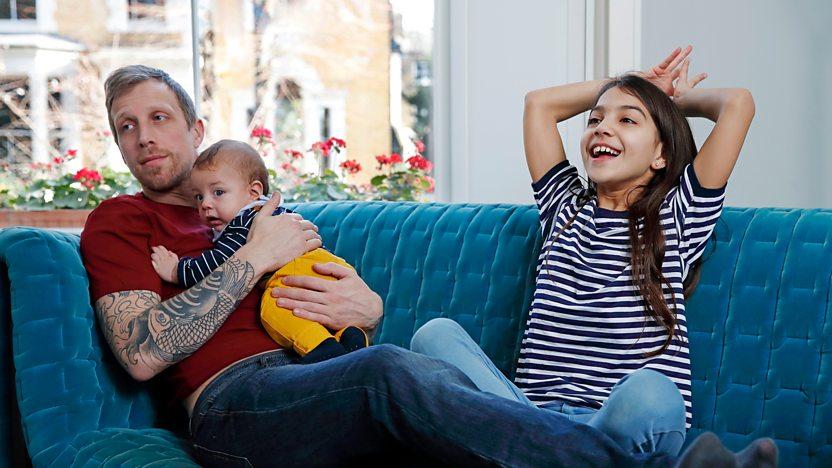
Be Well and Prosper
Five ways to manage your wellbeing as a parent during lockdown
When you were a child, perhaps you remember being aware of how your parents were feeling at a particular moment in time. In the same way, our own state of mind in lockdown can easily be passed on to our children. We may be fearful of showing this, but to never have any moments of anxiety or frustration is almost impossible right now. So, rather than trying to completely control or stop these negative emotions, we need to recognise them. Emotions easily spread through a family. If we can find moments to be calm and relaxed, these positive feelings will spread too.
Amidst the muddles, misunderstandings, fun and frustrations of present day family life, here are some suggestions about how - as a parent or carer - you can manage your own wellbeing.
1. Be realistic and kind to yourself
Things will rarely go according to plan, particularly now that all our routines are different. Don’t be self-critical. Setting and achieving goals are building blocks to good mental wellbeing. They boost how we feel about ourselves. So feel proud of what you achieve, however small. If we can ‘pat ourselves on the back’, we feel good about ourselves, happier, and less likely to feel down. Let your children hear that you are proud of your own achievements and theirs. This will help them learn to self-praise too.
Not all stressful feelings at present will be to do with coronavirus. Many daily stresses will relate to normal family struggles and the stages which your children are at. Not everything has to change because of the situation we’re in, and as much as possible you should continue to parent as before. Distraction techniques can be a good way to be kind to ourselves, calming us down and improving our sense of wellbeing. This might be through fun activities with other family members, like watching a film together or exercising. The main thing is that it’s something you enjoy. Even if you can’t easily join in older children’s activities, showing an interest might help them feel closer to you.
2. Notice what's on your mind
It's sometimes easy not to notice how we’re feeling, particularly in the hurly burly of family life. You might feel stressed, without having noticed how this started. It's good to do regular ‘mind checks’ about how you’re feeling, but also ask how others in your family are feeling. Have gentle conversations about emotions. Some days will be stressful, when things don't go to plan or arguments erupt. This can't be helped. Instead, when we’re feeling stressed, it can help to just accept the feeling and not blame others for it. Let those around you know that we all go up and down a bit in our emotions, and that’s OK. When children see their parents doing this without blaming others, it also helps them to regulate their own feelings.
We can all keep turning to the calming activities which work for us and, right now, we should be making this a regular part of every day. For some people, having a bath, listening to music or going for a walk will help. Find out what works for you. That way, you can begin to let go of some of the more difficult feelings faced during lockdown.
3. Connect with other parents
This is probably the hardest time any of us have lived through as parents or carers. To support our own wellbeing, regularly talking to friends, family members or professionals has never been more important. Talking with people who are supportive and good at listening (without judging, criticising or competing) is a very human need. While we may miss the face-to-face contact we would usually have with trusted friends, we can still find ways to reach out to them and to support one another.
There isn’t much anyone can say at the moment to make it feel less worrying. What’s clear is that you are not the only parent who feels this way, and we are all finding a way along this new path. Within your own network of family and friends, there will be someone else who is feeling unconfident about home schooling or keeping to new routines. Reach out to them and problem solve together. Many parents are finding that online groups can be really supportive in sharing how they feel and suggesting new ideas for activities. When we feel well supported as parents, the calmer we tend to feel - and the more space we will have in our minds to support our children.
4. Create routine and agree your own rules
Our wellbeing is often nurtured by having a daily routine, a structure to our lives. If the day feels endless and without a plan, anxiety can easily be triggered. Staying focused, knowing what happens next and feeling proud of achieving our goals makes us feel good. But it is not easy. At present, juggling the multiple roles of parenting, home schooling and working can leave parents feeling that they are spread too thinly - and that we’re not doing a good job at any of our roles. This is hard.
Try having achievable timetables with attainable goals. Each evening, if we map out the following day, it can help us to feel reassured because we know what we expect to happen. Ideally, each family member will have a sense of their own timetable, with children involved in planning their own. Where possible, if everyone’s daily plans work well together, you will also benefit from an agreed time for shared activities or quiet time. This working together as a family will also help to boost wellbeing.
All families have their own rules, some more so than others. But developing some rules for how you can all manage at home at this time will certainly help. Working them out together, and including all your children in this, will make the rules feel jointly owned and fair.
5. Be honest and say sorry when you can
We promote our own wellbeing by knowing when we do and don't get things right. It’s not about getting it right all the time. Misunderstandings, disagreements and differences of opinion are normal. They happen for all parents and in all families, and they aren't a sign that things are not OK. If possible, try to sort these things out as early as possible so that bad feelings don't fester.
Where misunderstandings are of our own doing, as parents it’s important that we have the courage to acknowledge that we don't always get things right. Being able to say sorry can be enormously helpful in getting everyone get back on track. Being honest and open with your children, and sharing with them what they need to know, will boost both their wellbeing and your own.
From: https://www.bbc.co.uk/bitesize/articles/zrmhscw
Aitken Wellbeing Committee

